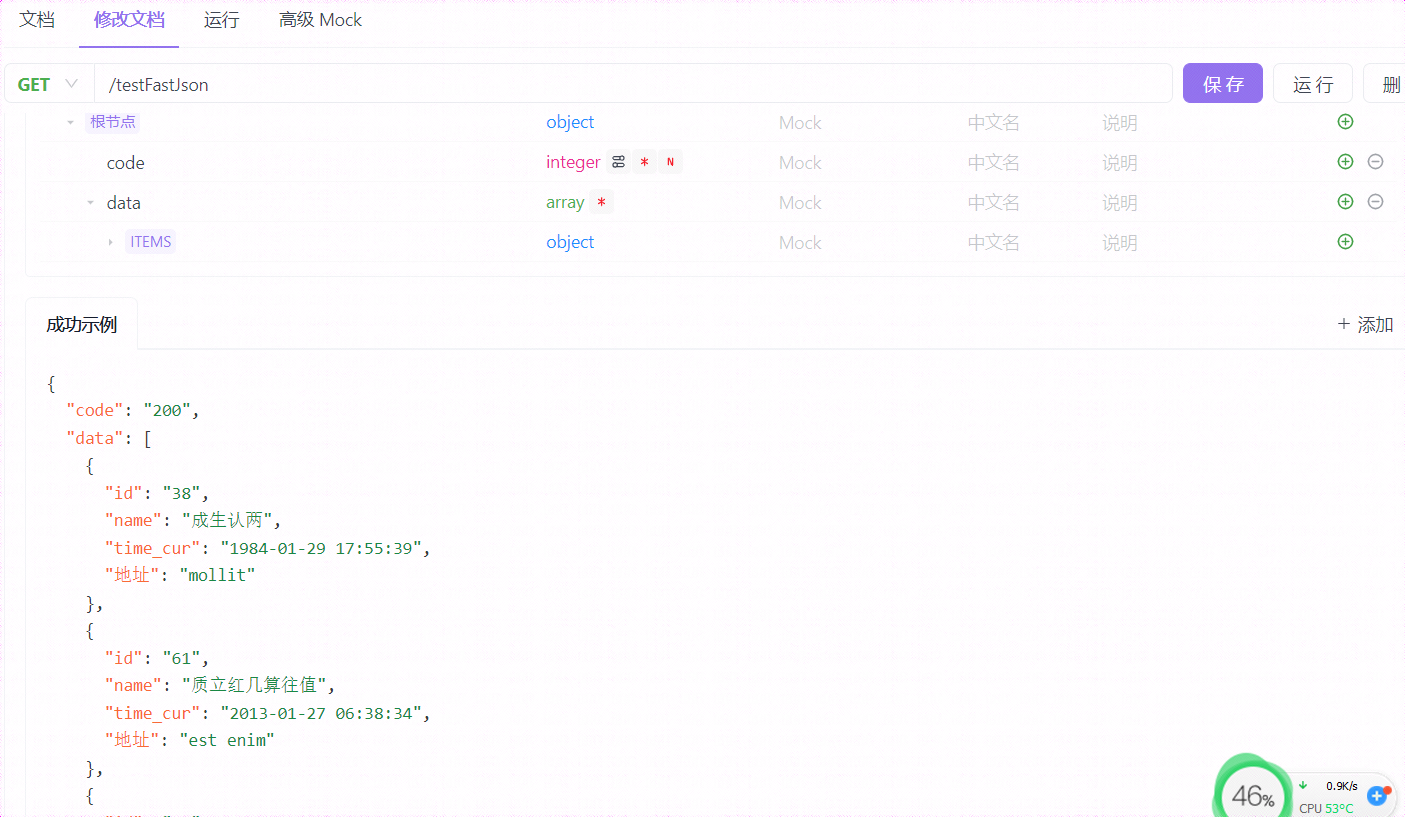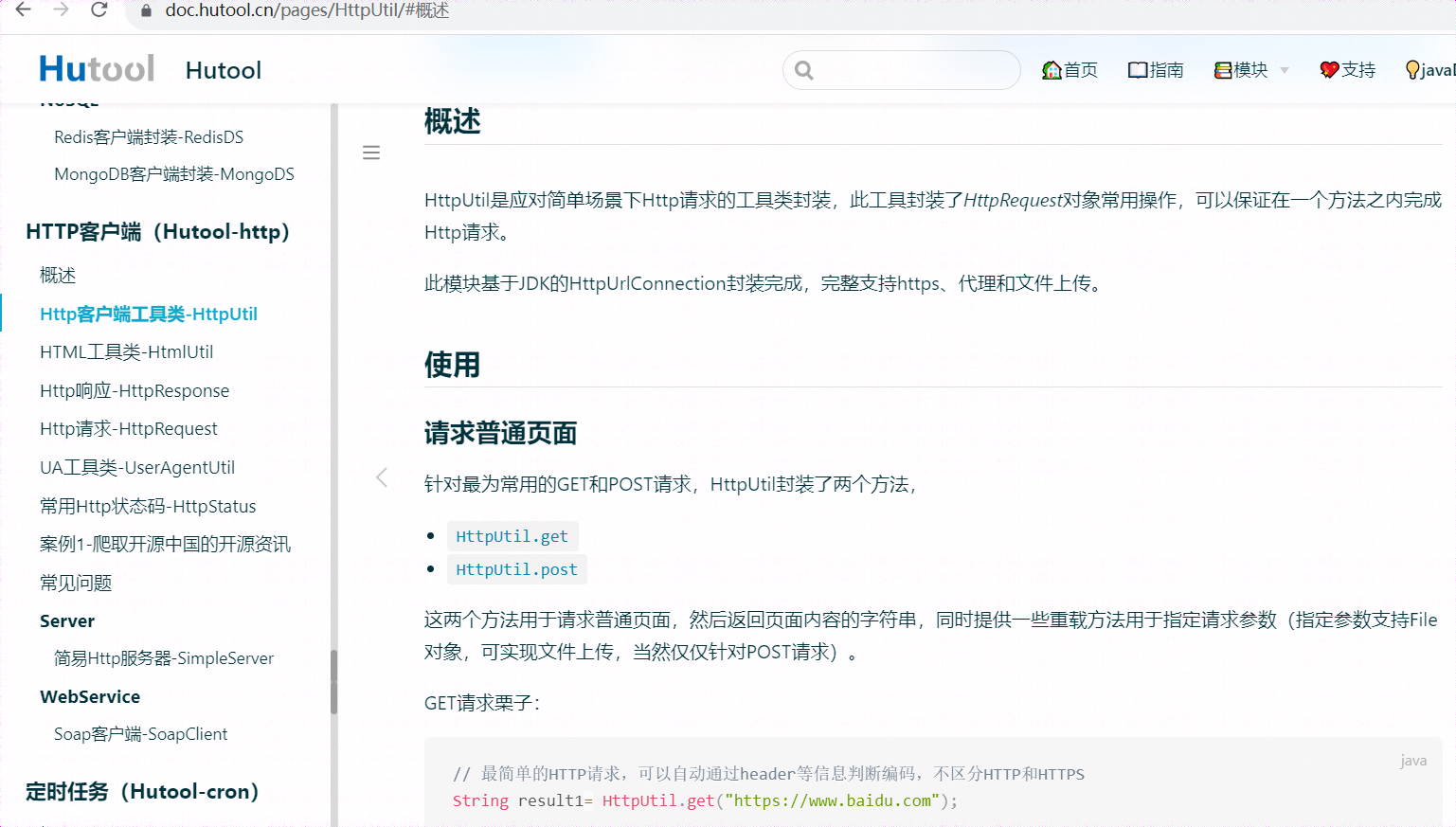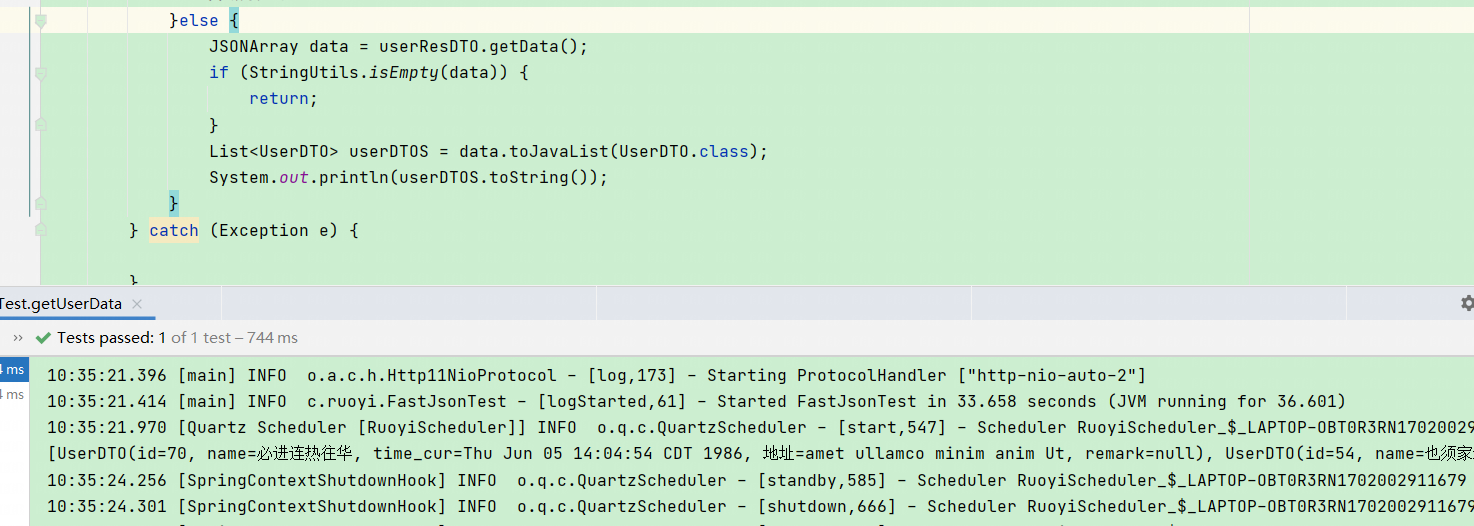场景
若依前后端分离版手把手教你本地搭建环境并运行项目:
https://blog.csdn.net/BADAO_LIUMANG_QIZHI/article/details/108465662
在上面搭建SpringBoot项目的基础上,并且在项目中引入fastjson、hutool、lombok等所需依赖后。
系统需要对接第三方http接口获取返回的数据,并将json数据解析为实体类进行后续的业务处理。
注:
博客:
https://blog.csdn.net/badao_liumang_qizhi
实现
1、使用接口mock工具模拟出一个http的接口,比如使用apifox

比如这里接口返回的数据为
{
"code": "200",
"data": [
{
"id": "38",
"name":
"成生认两",
"time_cur": "1984-01-29 17:55:39",
"地址": "mollit"
},
{
"id": "61",
"name": "质立红几算往值",
"time_cur": "2013-01-27 06:38:34",
"地址": "est
enim"
},
{
"id": "53",
"name":
"办单正决风放",
"time_cur": "2008-10-18 14:00:37",
"地址": "ex commodo nisi"
},
{
"id": "54",
"name": "角件二心任眼",
"time_cur": "1978-11-14 10:13:04",
"地址": "nisi
exercitation quis voluptate"
}
]
}
然后进行mock,效果为

2、这里发起http客户端请求使用hutool的HttpUtil

上面的接口中故意加了一个字段为中文名“地址”,因为第三方系统返回接口数据如此,其它字段均与接口中返回字段对应即可。
然后接口中返回的时间字段为字符串,这里在新建实体类时使用
@JsonFormat(pattern = "yyyy-MM-dd hh:mm:ss")
注解即可将时间字符串解析成Date属性字段。
3、新建接口数据响应DTO,用来接受接口响应并判断code字段等
import com.alibaba.fastjson.JSONArray;
import lombok.Data;
import
java.io.Serializable;
@Data
public class UserResDTO
implements Serializable {
private static final long
serialVersionUID = 1L;
/**
* 响应编码
*/
private Integer code;
/**
* 数据
*/
private JSONArray data;
}
这里接口数据返回为data字段,所以新建JSONArray 类型接收。
然后需要将data字段中的数据解析成对象的list。
新建UserDTO用来解析需要的数据
import com.fasterxml.jackson.annotation.JsonFormat;
import lombok.Data;
import
java.util.Date;
@Data
public class UserDTO {
private String id;
private
String name;
@JsonFormat(pattern = "yyyy-MM-dd
hh:mm:ss")
private Date time_cur;
private String 地址;
private
String remark;
}
4、新建测试类
调用JSONArray的toJavaList方法将数据解析为java的list对象
import cn.hutool.http.HttpRequest;
import com.alibaba.fastjson.JSON;
import com.alibaba.fastjson.JSONArray;
import com.ruoyi.common.utils.StringUtils;
import com.ruoyi.system.domain.test.dto.UserDTO;
import com.ruoyi.system.domain.test.dto.UserResDTO;
import org.junit.Test;
import
org.junit.runner.RunWith;
import
org.springframework.boot.test.context.SpringBootTest;
import
org.springframework.test.context.junit4.SpringRunner;
import java.util.List;
@RunWith(SpringRunner.class)
@SpringBootTest(classes =
RuoYiApplication.class,webEnvironment =
SpringBootTest.WebEnvironment.RANDOM_PORT)
public class
FastJsonTest {
@Test
public void
getUserData() {
String body = "";
try {
body =
HttpRequest
.get("http://127.0.0.1:4523/m1/2858210-0-default/testFastJson")
.timeout(20000)
.execute()
.body();
UserResDTO userResDTO = JSON.parseObject(body,
UserResDTO.class);
if (userResDTO.getCode()
!= null && 200!=userResDTO.getCode()) {
//错误处理
}else {
JSONArray data =
userResDTO.getData();
if
(StringUtils.isEmpty(data)) {
return;
}
List<UserDTO> userDTOS =
data.toJavaList(UserDTO.class);
System.out.println(userDTOS.toString());
}
} catch (Exception e) {
}
}
}
运行单元测试,查看解析结果
